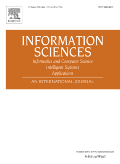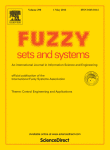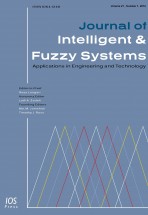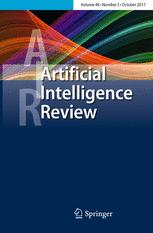Papers published by the BORDA Research Group:
- J. C. R. Alcantud. Liberal approaches to ranking infinite utility streams: When can we avoid interference? Social Choice and Welfare 41 (2013), 381-396.
- J. C. R. Alcantud. The impossibility of social evaluations of infinite streams with strict inequality aversion. Economic Theory Bulletin 1 (20013), 123-130.
- J. C. R. Alcantud, R. de Andrés and J. M. Cascón. On measures of cohesiveness under dichotomous opinions: some characterizations of Approval Consensus Measures. Information Sciences 240 (2013), 45-55.
- J. C. R. Alcantud, R. de Andrés and J. M. Cascón. A unifying model to measure consensus solutions in a society. Mathematical and Computer Modelling 57 (2013), 1876-1883.
- J. C. R. Alcantud, R. de Andrés and J. M. Cascón. Consensus and the act of voting. Studies in Microeconomics 1 (2013), 1-22.
- J. C. R. Alcantud, M. D. García-Sanz. Evaluations of infinite utility streams: Pareto-efficient and egalitarian axiomatics. Metroeconomica 64 (2013), 432-447.
- O. Aristondo, J. L. García-Lapresta, C. Lasso de la Vega and R. A. Marques Pereira. Classical inequality indices, welfare and illfare functions, and the dual decomposition. Fuzzy Sets and Systems228 (2013), 114-136.
- J. L. García-Lapresta. Reciprocal and linguistic preferences. In On Fuzziness. A Homage to Lotfi A. Zadeh, vol. 1 (eds. R. Seising, E. Trillas, C. Moraga, S. Termini). Springer-Verlag, Berlin, pp. 193-197, 2013.
- P. J. Gutiérrez, C. R. Palmero. A note on the real effects of monetary shocks: a limited participation model. Macroeconomic Dynamics 17 (2013), 936-946.
- B. Llamazares. An analysis of some functions that generalizes weighted means and OWA operators. International Journal of Intelligent Systems 28 (2013), 380-393.
- B. Llamazares. On the structure of voting systems between two alternatives. Review of Economic Design 17 (2013), 239-248.
- B. Llamazares, T. Peña. Aggregating preferences rankings with variable weights. European Journal of Operational Research 230 (2013), 348-355.
- B. Llamazares, P. Pérez-Asurmendi and J. L. García-Lapresta. Collective transitivity in majorities based on difference in support. Fuzzy Sets and Systems 216 (2013), 3-15.



